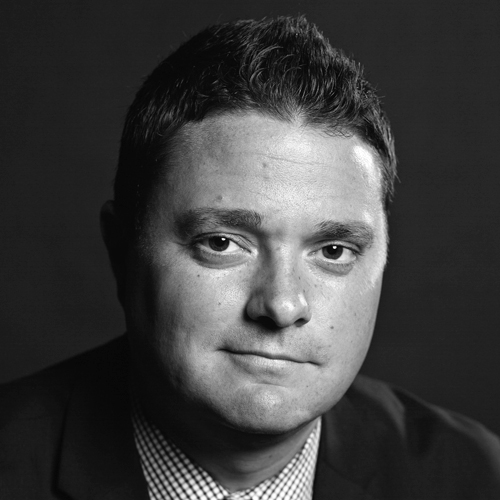Modern Counsel: Was it difficult to transition in-house after more than two decades in private practice?
Todd Woelfer: I was a generalist during my time at May Oberfell Lorber, and that flexibility is essential in-house. I had been an outside GC for Coachman Industries, another publicly traded recreational vehicle (RV) company for several years. With that and a great deal of other RV-related legal work, the transition to Thor was a very natural extension of my career.
MC: You started in recreational vehicles right when the recession hit. What did the industry look like at that time?
TW: Brutal. Few industries were hit as hard as we were. About 85 percent of the RV business is within 90 miles of where I’m sitting in Elkhart, Indiana, so I saw the impact up close.
MC: You could have gone back to private practice or found in-house work in another industry. Why stay in one that was struggling?
TW: Because Thor called. I knew about the company and its people. We have a unique and truly decentralized business model that drove profitability even during the recession. We don’t make RVs; we own companies that do. We empower our subsidiaries to set their own course with our input and guidance. This enables them to be nimble and react to economic situations and world events that impact the industry. I was also drawn to the people. I knew of the outstanding reputations of Thor’s leaders.
MC: Why is that decentralized model so important?
TW: Our subsidiaries actually compete against each other. This drives our success because it empowers and motivates our management teams. They don’t wait for directives from on high. They have to take ownership. We buy successful companies with solid management teams, so the idea of supplanting the management of the companies at the corporate level is inconsistent with our model.
MC: Talk more about that competition.
TW: It’s fierce. We’re publicly traded, and our major competitor, Warren Buffet’s Forest River, is a subsidiary of a publicly traded company, so they don’t see the same regulatory burden and disclosure compliance issues that we do. Our competition’s headquarters is five miles from ours in this small Indiana community full of entrepreneurs with great vision. It’s an interesting and fun place to live and work.
MC: Thor has a long history of acquisitions in the United States. Are you expanding internationally?
TW: The whole industry is behind the curve internationally, but as commerce becomes more global, that’s the undeniable future for us. We’re taking dedicated steps to do that, but there are unique legal and operational challenges.
MC: Which ones stand out?
TW: Some of the biggest markets pose unique obstacles. There are strong regulations against RVs on roads in China, for example. That’s obviously a problem for us.
MC: Is there any way around that?
TW: We’re working with our partners in various regions of the world with the goal of opening up those markets for our products. The markets are developing, which presents a great opportunity for our industry.
MC: What is legal’s role in this growth?
TW: Assuring compliance and managing our contractual relationships are two big roles for legal. For example, as a publicly traded company, we are subject to the Foreign Corrupt Practices Act and have developed a robust program to ensure compliance.
MC: Do you expect Thor’s pattern of acquisitions to continue?
TW: We are an opportunistic acquirer, so part of the answer to that question depends on the opportunities that the market presents. Our performance has lead to the generation of cash, which makes capital allocation an important element of our strategic planning. But we do see opportunities on the horizon.
MC: It’s obvious that you work closely with the business side. Was that intentional?
TW: This was very important to me when I considered taking the position. My original interests were in the business world, as I wanted to pursue a career in investment banking. Today, the best part of my job is that I work for a CEO and a board that welcomes the GC’s voice in the boardroom and in strategic discussions. I’m fortunate to be one of four executive managers who work together to form a great team.
MC: What is the structure of your legal team?
TW: We have four other lawyers who have meaningful RV industry experience. We all came from private practice and spent time representing RV companies. Between the five of us, we have more than 80 years of relevant industry experience, which positions us to partner with our strategic leaders to help reach our goals. When it comes to managing this team, I have a simple philosophy: I ensure I have high-integrity people who have the talent to excel, and then I let them do their jobs.
MC: Other companies your size would have a bigger staff. How do you stay on top of the workload?
TW: With more than $3.2 billion in sales for our last fiscal year, legal department statistics suggest we should be a bigger team, but our team is strong enough to handle the work. We’ve actually brought a great deal of work in-house that we once sent outside. We were spending money to do work that I knew our team was capable of doing, and it’s part of my obligation to our shareholders to find more effective, more cost-efficient ways to do things.
MC: What’s in store for 2015 and beyond?
TW: Our industry is on an incredible run right now. The demographics suggest a continuation. We’ve got baby boomers buying RVs, and we have younger people becoming more engaged. The strength of our market and the quality of our product offerings is better than it’s ever been. I see more growth for Thor and for our industry.


